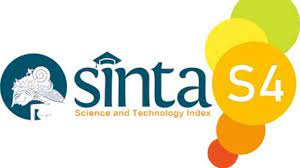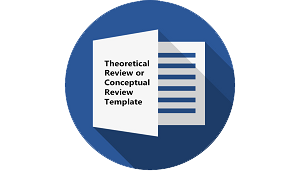The Implementation of Jigsaw Learning Model in Teaching Speaking for Senior High School Students
DOI:
https://doi.org/10.30957/ijoltl.v6i2.718Keywords:
Jigsaw, speaking skill, improvementAbstract
Speaking skill is one of the most important skills to acquire foreign or second language learning. This research aimed to describe the concept of speaking skills, the implementation of the jigsaw learning model in teaching speaking, the advantage and disadvantages of the jigsaw learning model, and the strategies to implement the jigsaw learning model in speaking class. The type of this research is descriptive qualitative. It used library research to collect the data. The approach was taken by examining some library materials, publications of research results, and opinions of world leaders, who studied the use of the jigsaw learning model in teaching speaking. Data is in the form of books, journals, encyclopedias, magazines, papers, and articles. The Internet site access method (Website) is applied by browsing websites/sites that provide various data and information related to research, various theories, and practices that the author was researching. The collected data was then checked for correctness, suitability, and reliability through content analysis, then described, and interpreted to conclude. The results of the study showed that the use of the jigsaw learning model was very useful and can improve students' speaking skills. The students become more active in the learning process and have good interaction and communication with other students in the class.
Downloads
References
Al-Tamimi, N. O. M., & Attamimi, R. A. (2014). Effectiveness of cooperative learning in enhancing speaking skills and attitudes towards learning English. International Journal of Linguistics, 6(4), 27.
Donggomataram. (2013). Donggo Ndano Mango. Retrieved from A Topnotch WordPress.com site: https://donggoagus.wordpress.com/2013/10/01/the-use-of-jigsaw-technique-in-improving-the-students-speaking-ability-in-academic-year-20122013/
Haryanto, D. (2017). The Effect of Using Jigsaw Learning Technique in Increasing in Student’s Speaking Ability in the English Debate Class (Doctoral dissertation, UMSU).
Intan, F. D. (2020). ImplementingJigsaw Method for Teaching Speaking a Case Study of Teaching and Learning at SMK Swadaya Klaten (Doctoral Dissertation, Universitas Widya Dharma Klaten).
Ndun, A. V. E. (2016). The Implementation of Jigsaw Expert and Home Group Presentation to Increase speaking Skills of grade 8 Students. SEAMEO RECSAM.
Rajagopalan, I. (2019). Concept of Teaching. Shanlax International Journal of Education, 7(2), 5-8.
Rao, P. S. (2019). The importance of speaking skills in English classrooms. Alford Council of International English & Literature Journal (ACIELJ), 2(2), 6-18.
Rika, M. Y. (2017). The Implementation of Jigsaw Technique in Teaching Speaking of the Eight Grade Students at the Second Semester of SMP Negeri 1 KRUI in 2015/2016 Academic Year (Doctoral Dissertation, UIN Raden Intan Lampung).
Suciati, R. S. (2018). A Comparative Study Using Suggestopedia and Jigsaw In Teaching Speaking Skill (Doctoral dissertation, Universitas Muhammadiyah Semarang).
Syukur, H. (2016). Building Up Students’ Speaking Achievement Through Jigsaw Technique. Jurnal Adabiyah, 16(2), 122-137.
Ubaedillah, U. (2019). Improving Students' English Speaking Ability through Jigsaw. Research and Innovation in Language Learning, 2(3), 216-227.
Downloads
Published
How to Cite
Issue
Section
License
Authors who publish with this journal agree to the following terms:
- Authors retain copyright and grant the journal right of first publication with the work simultaneously licensed under a Creative Commons Attribution-ShareAlike 4.0 International License that allows others to share the work with an acknowledgement of the work's authorship and initial publication in this journal.
- Authors are able to enter into separate, additional contractual arrangements for the non-exclusive distribution of the journal's published version of the work (e.g., post it to an institutional repository or publish it in a book), with an acknowledgement of its initial publication in this journal.
- Authors are permitted and encouraged to post their work online (e.g., in institutional repositories or on their website) prior to and during the submission process, as it can lead to productive exchanges, as well as earlier and greater citation of published work (See The Effect of Open Access).












